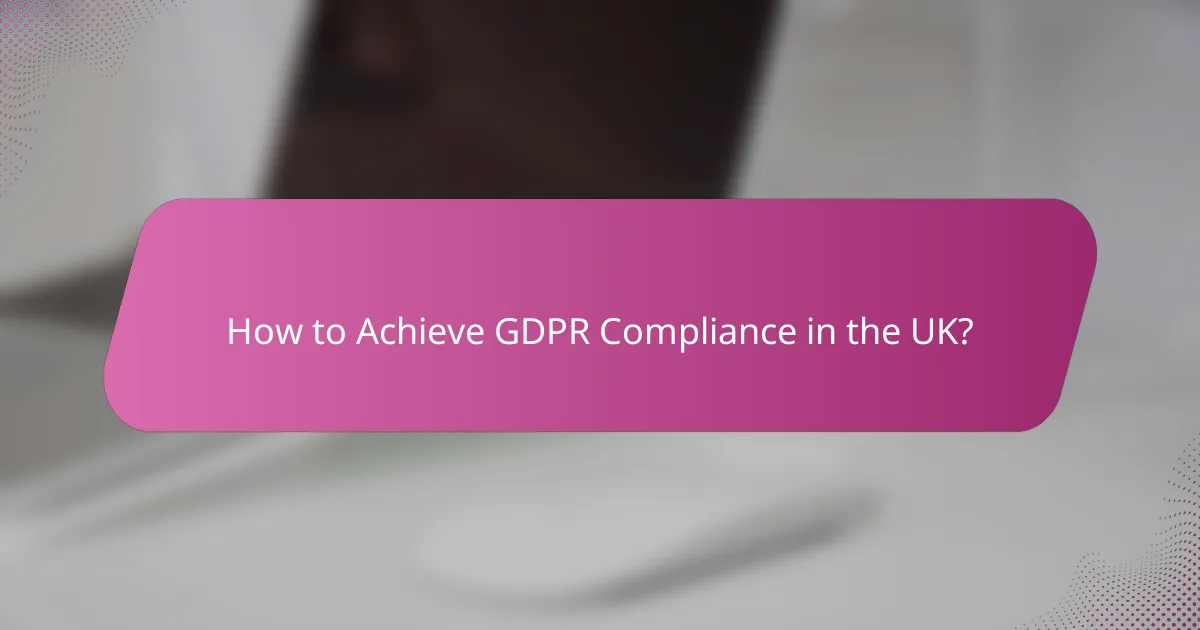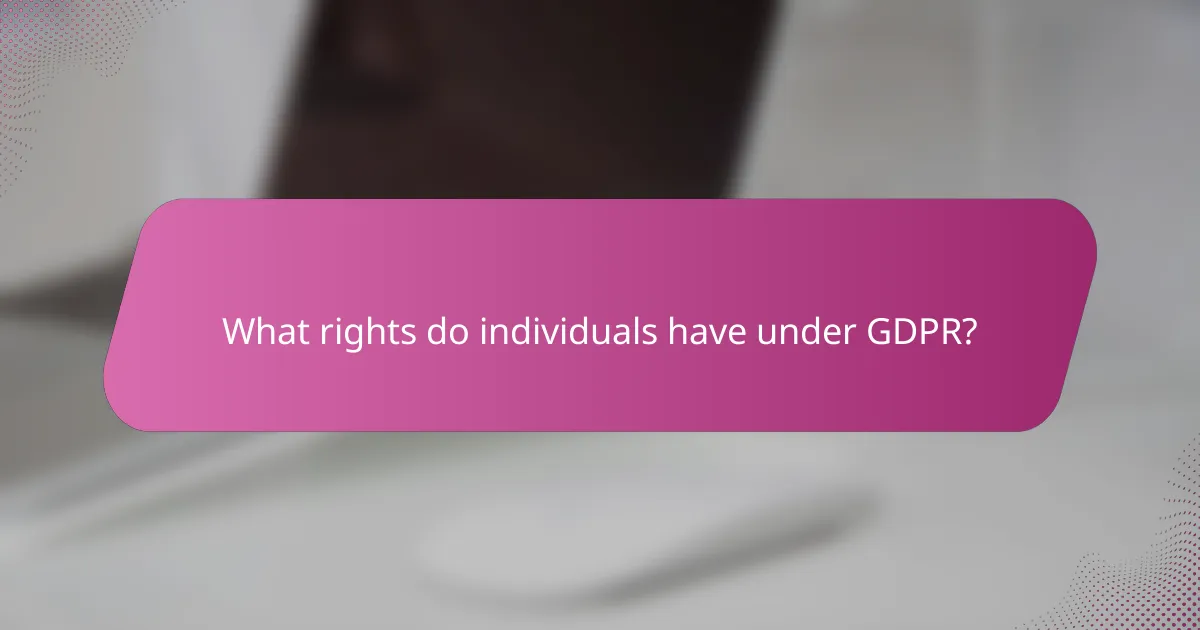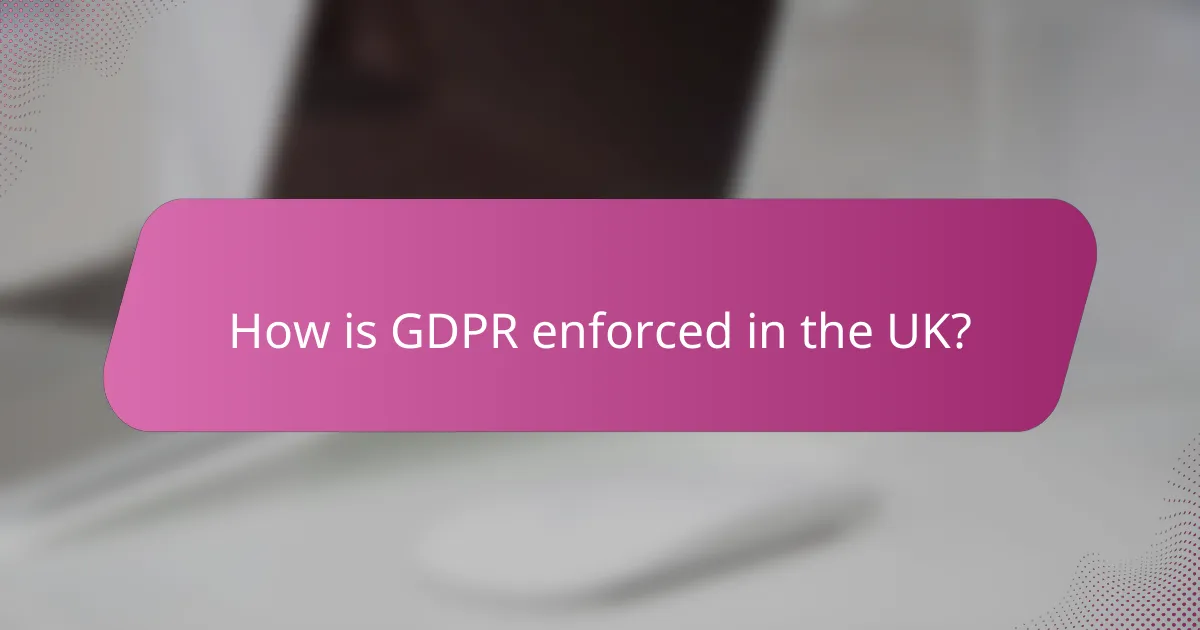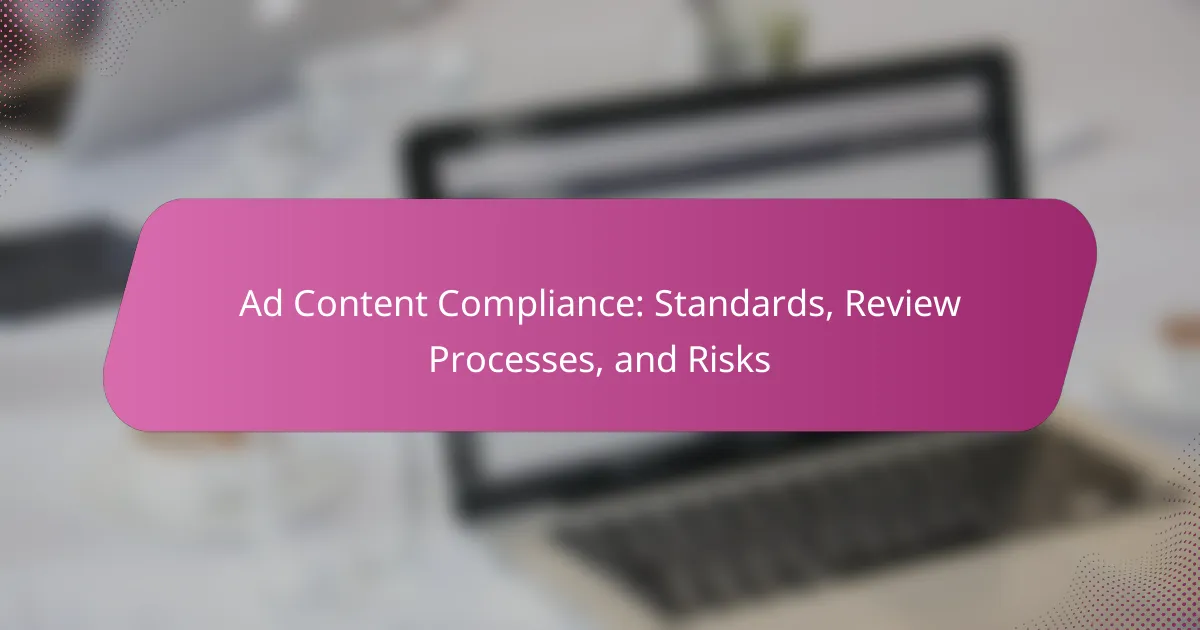The General Data Protection Regulation (GDPR) establishes essential principles for the handling of personal data, ensuring that it is processed legally, fairly, and transparently. To achieve compliance, organizations must implement structured processes that protect individuals’ rights, including access to their data and the ability to request corrections or deletions. Understanding these key principles and rights is crucial for both organizations and individuals in navigating the complexities of data protection.

How to Achieve GDPR Compliance in the UK?
To achieve GDPR compliance in the UK, organizations must implement a series of structured processes that protect personal data and uphold individuals’ rights. This involves establishing clear data protection policies, conducting regular audits, training employees, utilizing compliance tools, and engaging legal experts for guidance.
Implement data protection policies
Creating robust data protection policies is essential for GDPR compliance. These policies should outline how personal data is collected, processed, stored, and shared, ensuring transparency and accountability. It’s important to regularly review and update these policies to reflect any changes in operations or regulations.
Consider including sections on data minimization, purpose limitation, and retention periods. For instance, specify that personal data will only be retained for as long as necessary for its intended purpose, which helps mitigate risks associated with data breaches.
Conduct regular audits
Regular audits are critical for assessing compliance with GDPR requirements. These audits should evaluate data handling practices, identify potential vulnerabilities, and ensure that policies are being followed. Aim to conduct audits at least annually, or more frequently if significant changes occur in data processing activities.
During audits, check for proper documentation of data processing activities and ensure that consent mechanisms are effective. This proactive approach helps organizations identify issues before they escalate into compliance failures.
Train employees on data privacy
Training employees on data privacy is vital for fostering a culture of compliance within the organization. All staff members should understand their responsibilities regarding personal data and the implications of GDPR. Regular training sessions can help keep data protection top of mind.
Consider using practical examples and case studies during training to illustrate the importance of data privacy. This can enhance engagement and ensure that employees recognize the real-world impact of their actions on data protection.
Utilize GDPR compliance tools
GDPR compliance tools can streamline the process of managing personal data and ensuring adherence to regulations. These tools often include features for tracking consent, managing data subject requests, and conducting impact assessments. Investing in such tools can save time and reduce the risk of non-compliance.
When selecting compliance tools, look for those that offer user-friendly interfaces and robust reporting capabilities. This will facilitate easier monitoring and documentation of compliance efforts, making it simpler to demonstrate adherence during audits.
Engage with legal experts
Engaging with legal experts who specialize in data protection law can provide invaluable guidance on achieving GDPR compliance. These professionals can help interpret complex regulations, assess compliance risks, and develop tailored strategies for your organization.
Consider establishing a relationship with a legal advisor or consulting firm that has experience in GDPR matters. This can provide ongoing support and ensure that your compliance efforts are aligned with the latest legal developments and best practices.

What are the key principles of GDPR?
The General Data Protection Regulation (GDPR) is built on several key principles that guide how personal data should be handled. These principles ensure that data is processed legally, fairly, and transparently, while also protecting the rights of individuals.
Lawfulness, fairness, and transparency
Data processing must be lawful, fair, and transparent to the data subjects. Organizations must have a valid legal basis for processing personal data, such as consent or legitimate interests. Transparency requires clear communication about how and why data is collected and used.
To ensure fairness, organizations should avoid misleading practices and should respect the expectations of individuals regarding their data. Providing privacy notices that are easy to understand is crucial for maintaining transparency.
Purpose limitation
The purpose limitation principle states that personal data should only be collected for specified, legitimate purposes and not processed in a manner incompatible with those purposes. This means organizations must clearly define the reasons for data collection at the outset.
For example, if data is collected for marketing purposes, it cannot later be used for unrelated activities without obtaining further consent. This principle helps to prevent misuse of personal data and builds trust with individuals.
Data minimization
Data minimization requires that only the necessary amount of personal data be collected for the intended purpose. Organizations should assess what data is truly needed and avoid collecting excessive information.
For instance, if a company only needs an email address for a newsletter, it should not request additional details like a phone number or home address. This practice reduces the risk of data breaches and enhances privacy protection.
Accuracy
The accuracy principle mandates that personal data must be accurate and kept up to date. Organizations are responsible for ensuring that any inaccurate data is corrected or deleted without delay.
Regular reviews and updates of personal data can help maintain accuracy. For example, businesses should implement processes to verify contact information periodically to ensure it remains current.
Storage limitation
Storage limitation dictates that personal data should not be kept longer than necessary for the purposes for which it was collected. Organizations must establish retention policies that define how long data will be stored.
After the retention period, data should be securely deleted or anonymized. This principle helps to minimize risks associated with data breaches and ensures compliance with GDPR requirements.

What rights do individuals have under GDPR?
Under the General Data Protection Regulation (GDPR), individuals have several key rights that empower them to control their personal data. These rights include access to their data, the ability to correct inaccuracies, the option to request deletion, the right to transfer data, and the ability to object to processing.
Right to access
The right to access allows individuals to request and obtain confirmation from organizations about whether their personal data is being processed. If so, individuals can access their data and receive additional information about how it is used.
To exercise this right, individuals can submit a request to the organization, which must respond within one month. Organizations may charge a fee for excessive requests, but generally, access should be provided free of charge.
Right to rectification
The right to rectification enables individuals to request corrections to their personal data if it is inaccurate or incomplete. This ensures that the data held by organizations reflects the most current and accurate information.
Individuals should clearly specify the inaccuracies and provide the correct information when making a request. Organizations are obligated to respond to rectification requests promptly, typically within one month.
Right to erasure
Also known as the “right to be forgotten,” the right to erasure allows individuals to request the deletion of their personal data under certain conditions. This right can be invoked when the data is no longer necessary for its original purpose or when consent is withdrawn.
Organizations must assess the request and delete the data if it meets the criteria. However, there are exceptions, such as when data retention is necessary for legal obligations or public interest.
Right to data portability
The right to data portability allows individuals to obtain and reuse their personal data across different services. This right facilitates the transfer of data from one service provider to another, enhancing user control over personal information.
Individuals can request their data in a structured, commonly used, and machine-readable format. Organizations must comply with these requests unless it adversely affects the rights of others.
Right to object
The right to object gives individuals the ability to challenge the processing of their personal data in certain situations, particularly when data is processed for direct marketing purposes. Individuals can refuse consent for such processing at any time.
Organizations must stop processing data for marketing if an objection is raised. However, objections may not be upheld in cases where processing is necessary for legal compliance or legitimate interests.

How is GDPR enforced in the UK?
GDPR enforcement in the UK is primarily managed by the Information Commissioner’s Office (ICO), which oversees compliance and addresses violations. The ICO has the authority to investigate complaints, issue fines, and provide guidance to organizations on data protection practices.
Role of the Information Commissioner’s Office (ICO)
The ICO is the UK’s independent authority set up to uphold information rights. It ensures that organizations comply with GDPR by conducting audits, investigating breaches, and providing resources to help businesses understand their obligations. The ICO can impose fines that can reach up to £17.5 million or 4% of annual global turnover, whichever is higher.
Investigation and Enforcement Process
When a complaint is filed, the ICO assesses the situation and may initiate an investigation. This process includes gathering evidence, interviewing relevant parties, and reviewing documentation. If a breach is confirmed, the ICO can issue a notice of intent to fine, allowing the organization to respond before a final decision is made.
Rights of Individuals Under GDPR
Individuals have several rights under GDPR, including the right to access their personal data, the right to rectification, and the right to erasure. These rights empower individuals to control their information and seek redress if their data is mishandled. Organizations must have processes in place to facilitate these rights effectively.
Common Pitfalls in Compliance
Organizations often struggle with maintaining accurate records of processing activities and ensuring proper consent mechanisms are in place. Failing to conduct regular data protection impact assessments can also lead to non-compliance. It’s crucial for businesses to stay informed about evolving regulations and best practices to avoid penalties.



